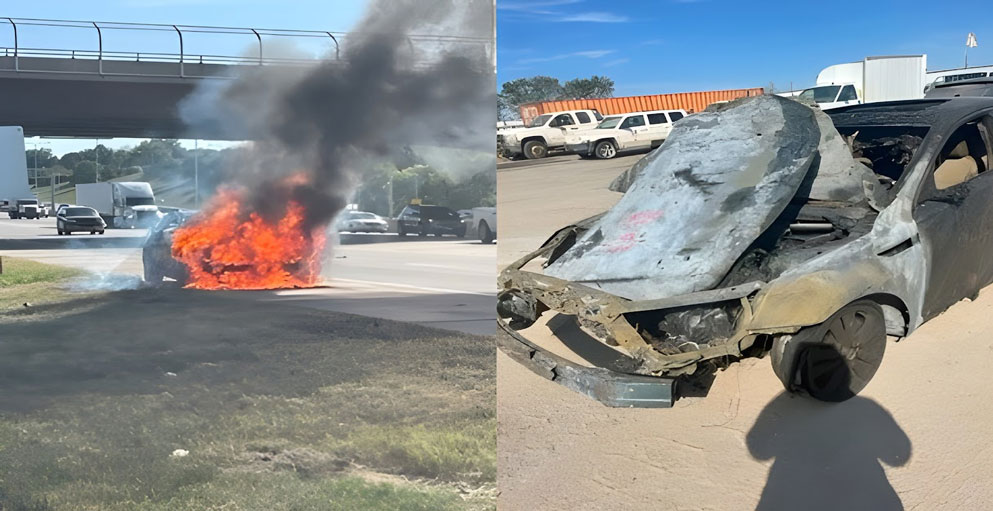
In May of 2023, ConsumerAffairs reported that millions of Americans were driving “potential death traps,” vehicles under recall for life-threatening hazards but were still unrepaired.
Since then, it’s only gotten worse.
In September, Hyundai recalled 1.6 million vehicles because their anti-lock brake systems were at risk of short-circuiting. The problem could cause their vehicles to catch fire, even when they’re turned off.
Hyundai has reported at least 21 car fires and 22 “thermal incidents,” including visible smoke, burning and melting, in the U.S. due to the defect. The photo above, submitted by the owner of a 2013 Kia Optima, shows the car engulfed in flames on a highway in Nebraska in September 2022.
“Due to fire risk, you are strongly advised to park your vehicles outside and away from safety structures until the recall remedy is completed,” Hyundai instructed drivers in its recall notice.
A ConsumerAffairs analysis of the National Highways Transportation Safety Administration (NHTSA) database reveals millions of recalled cars and trucks remain unrepaired, even though some of the safety problems could be lethal.
A prime example is the Takata airbag recall from over a decade ago – the largest automotive recall in history. A defect in the inflator could cause it to explode when the bag deploys, spraying occupants with tiny metal shrapnel.
159 recalls for extremely dangerous defects
ConsumerAffairs counted 159 recalls affecting as many as 11.5 million vehicles that have “do not drive” or “park outside” instructions. As many as 7 million of these vehicles have yet to be repaired.
Forty-five percent of vehicles with a “do not drive” warning are unrepaired while 38% of cars and trucks that carry a “park outside” advisory due to fire risk are also unrepaired, making them a danger to the vehicle owner as well as to nearby structures.
It should be noted that just because a recalled vehicle is unrepaired, it doesn’t necessarily mean that it is still on the road. Many are older vehicles and owners may have scraped them by now.
But it stands to reason that millions of potentially lethal vehicles are still being driven.
Some owners may be in the dark
Some drivers may not be aware their vehicle has a warning of life-threatening issues. They could be the third or fourth owner and recall notices never reach them.
Safety officials are quick to point out that all automotive recalls are done because of some threat to safety and owners of recalled vehicles should respond to all recall notices.
Owners of recalled vehicles, especially older Hyundai and Kias, should use the NHTSA recall database to find out if their vehicle has an open recall. Simply insert the 17-digit vehicle identification number (VIN).
The database will not only tell you about any open recalls, it will also indicate whether the recalls carry a “Do Not Drive” or “Park Outside” warning.
Photo Credit: Consumer Affairs News Department Images
Posted: 2024-01-09 12:23:26


















